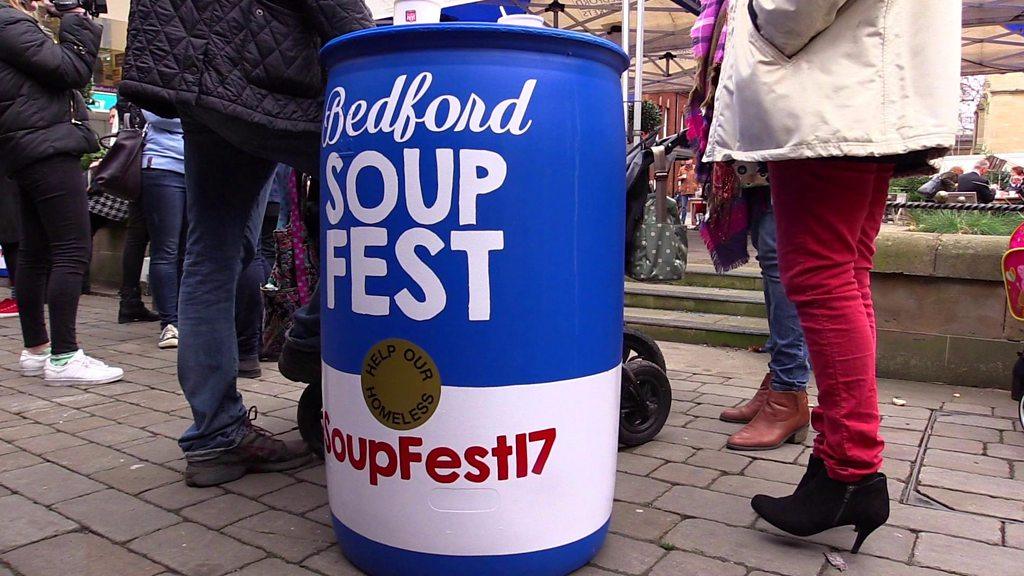Rough sleepers found beds after extra funding in Bedford
- Published
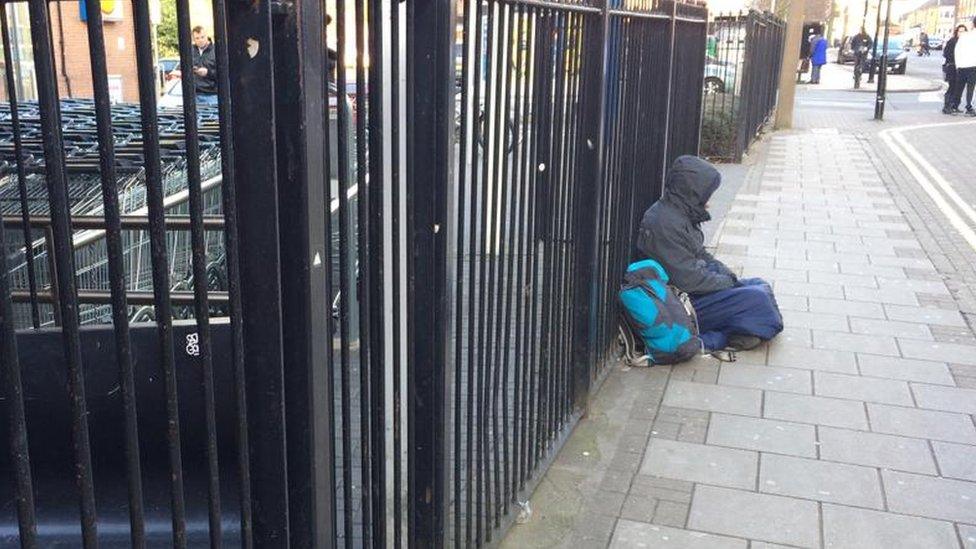
Government figures show Bedford had the seventh highest number of rough sleepers in England last year
Eight people are no longer on the streets after extra funding was given to a town with one of the highest numbers of rough sleepers in the country.
Official figures, external showed Bedford had 76 people on the streets in 2017 - a third higher than in 2016.
The borough council received £307,000 for extra support and housing in June.
Homeless inter-agency officer Sam Price said the government grant was "already having really positive results".
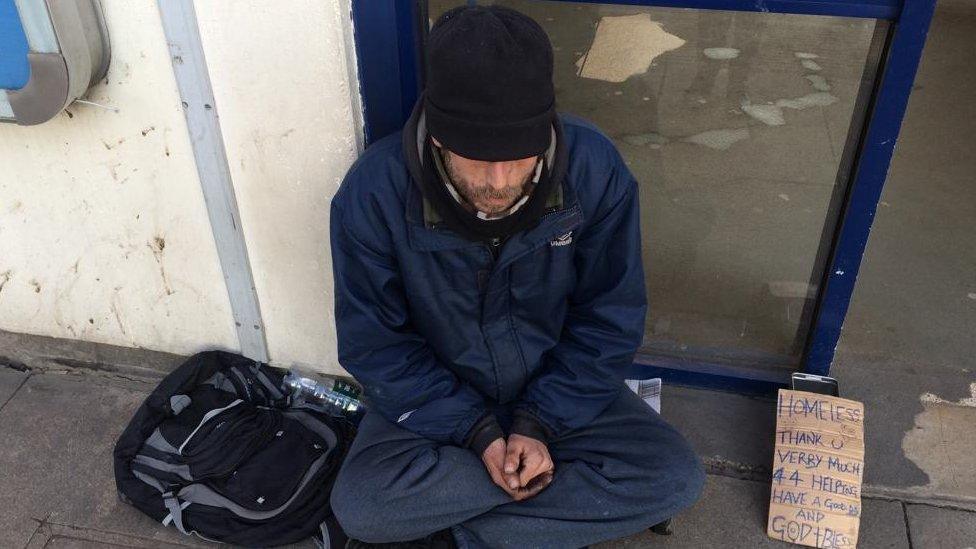
The money given to Bedford Borough Council has also funded six additional support workers and a Rough Sleeper Co-Ordinator post
Mrs Price said in the last two months, eight rough sleepers had been found beds, and two more were due to be housed in independent accommodation.
"We have been able to help the more entrenched rough sleepers and get them the ongoing support that they need," she added.
'I do understand'
The government has since announced a further £383,000 for Bedford, external over the next two years as part of plans to help councils with the highest numbers of people at risk.
Part of the funding has been used to employ six rough sleeper case workers, including Steve Scott, who used to be homeless himself.
He said he got into difficulty after having to "walk away from employment due to high stress levels being detrimental to my health".
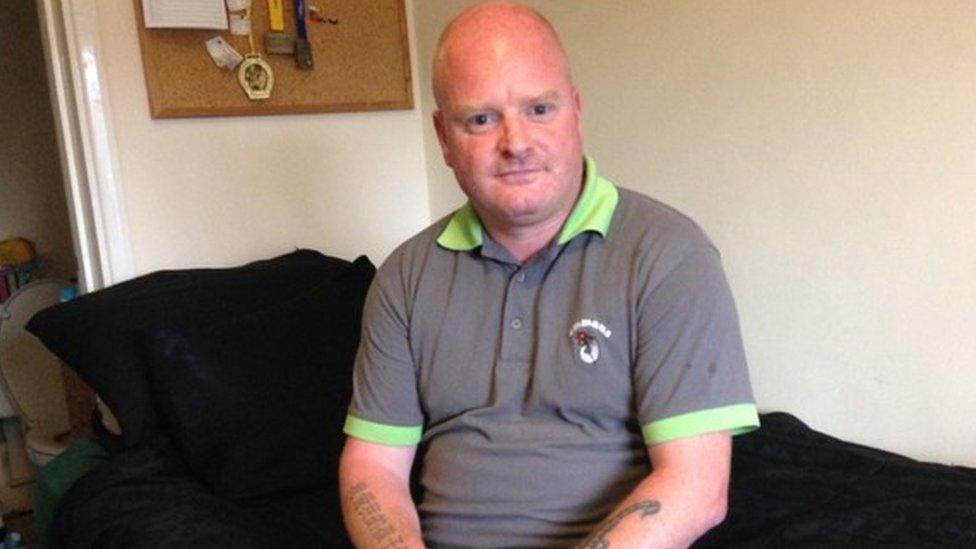
Steve Scott is currently living at the Emmaus Village Carlton, after being made homeless and is now employed as a rough sleeper case worker
Mr Scott said he was eventually offered a place to work and live at the homeless charity, Emmaus Village Carlton, near Bedford.
He applied for the new case worker role as he had empathy with homeless people, and wanted to do "something I enjoyed, not just something I was good at".
"It has really lifted my self-esteem, not only to be working again, but to be doing something that really can make a difference to the lives of others," he said.
"I very simply tell them that I have been where they are, and that I do understand some of what they are feeling/going through, and that is why I am there to help."
- Published13 August 2018
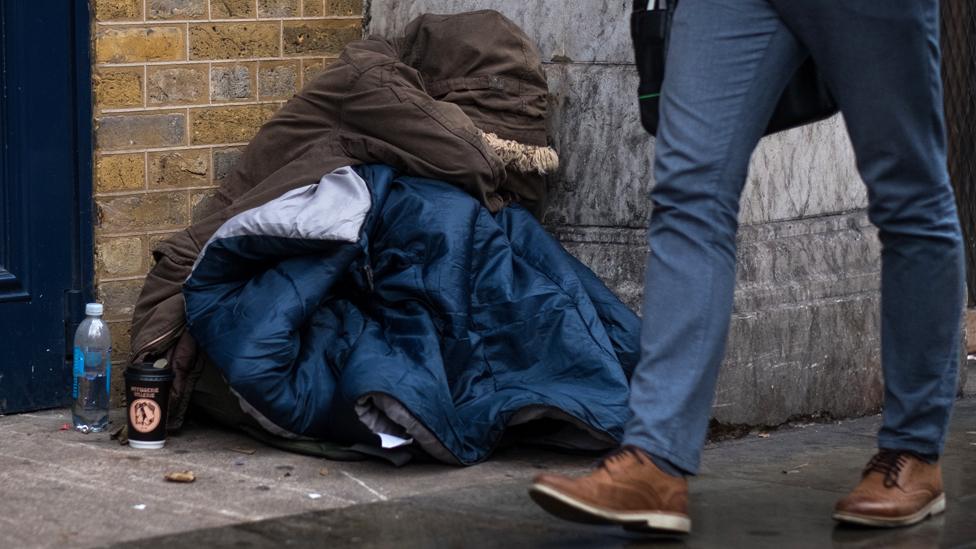
- Published3 March 2018
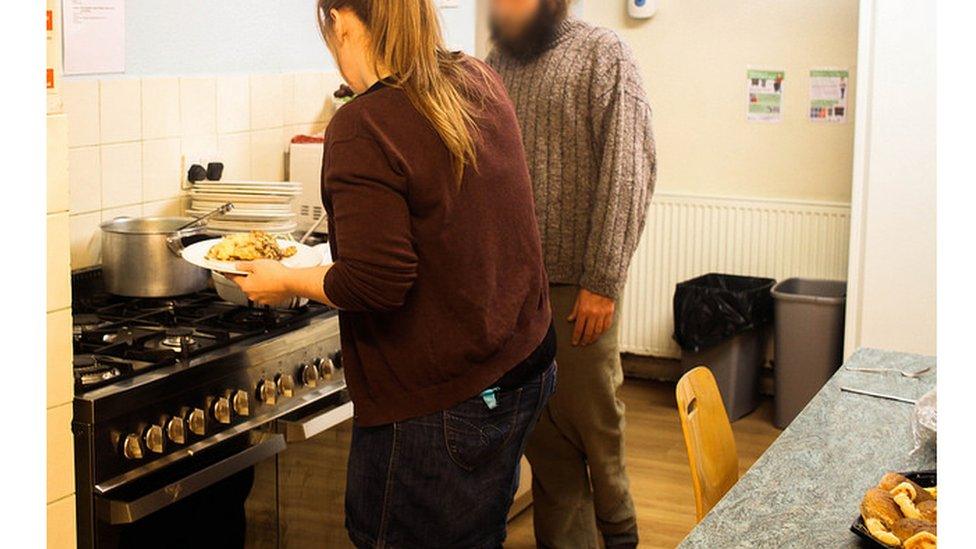
- Published28 February 2018

- Published25 January 2018
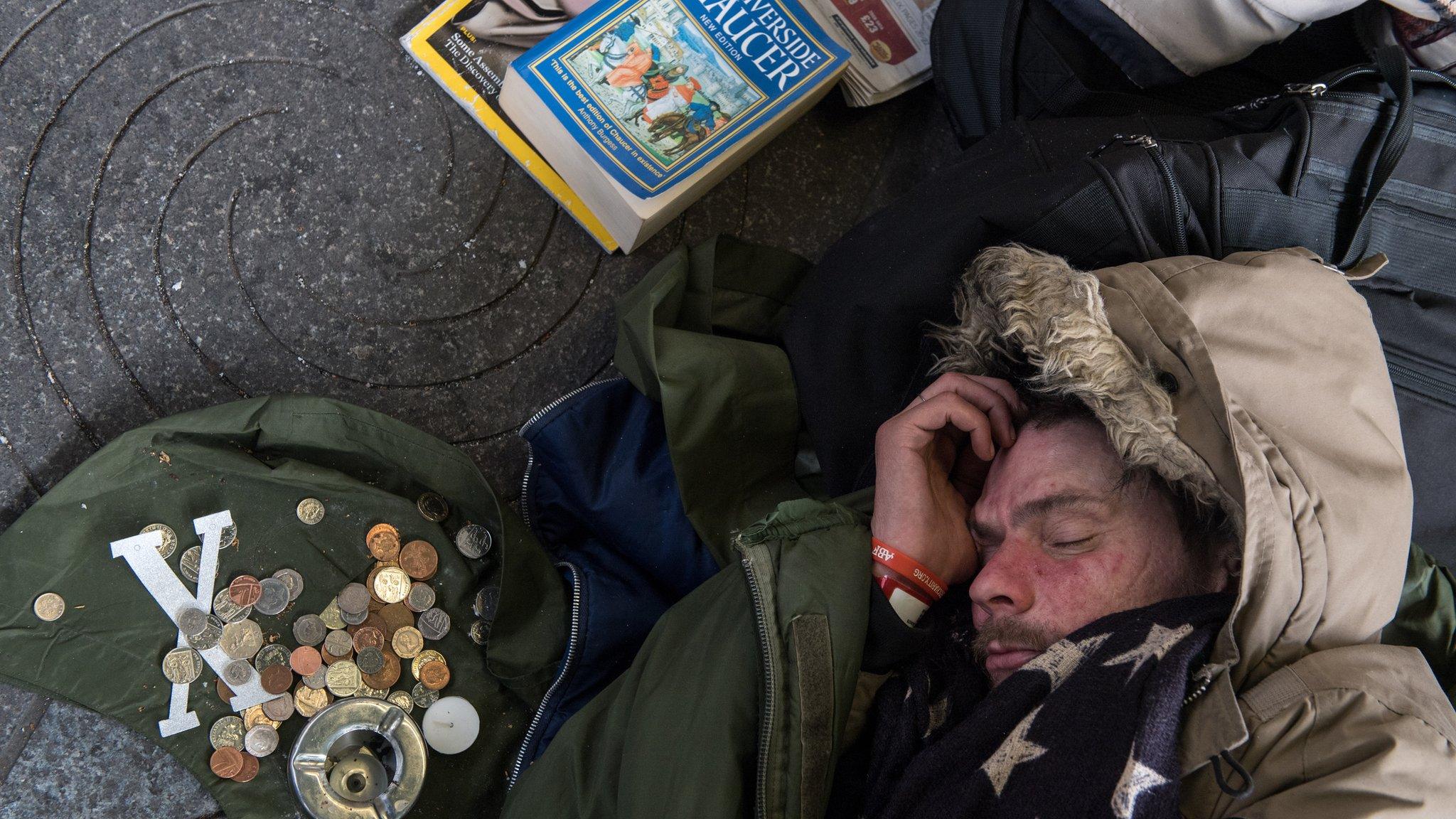
- Published12 December 2017
